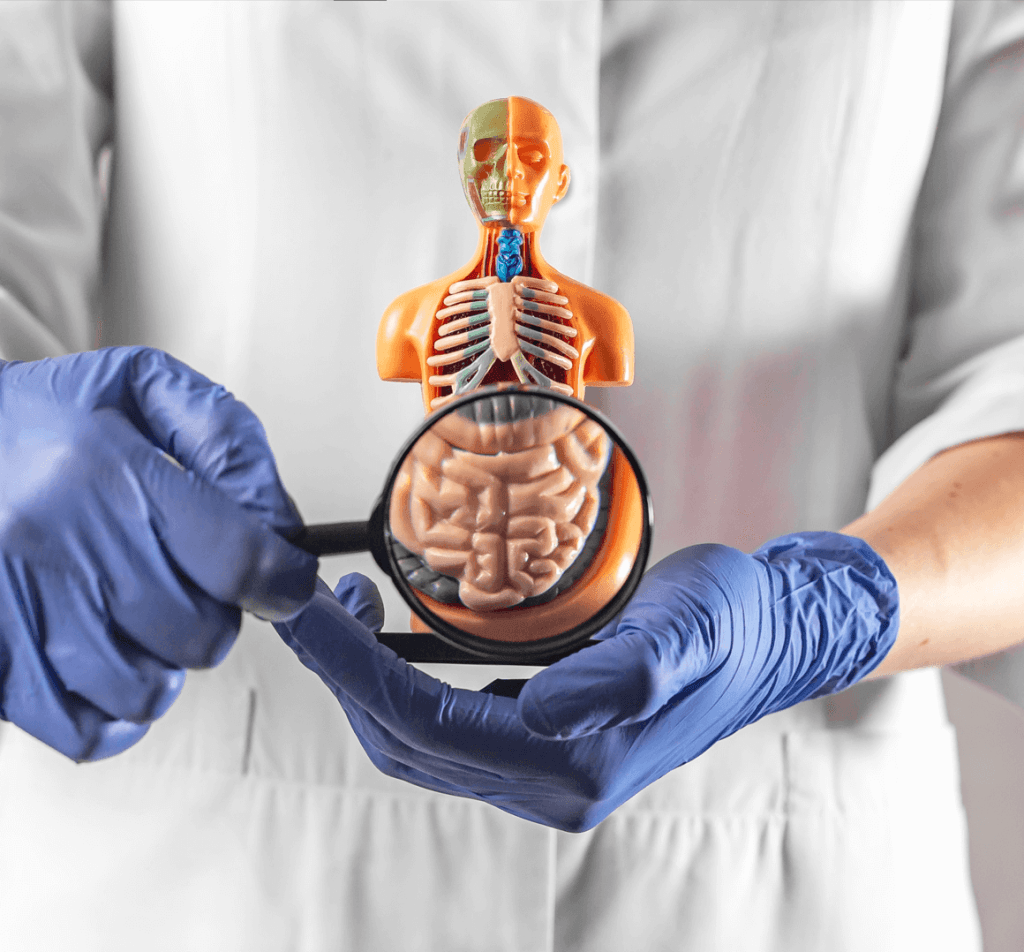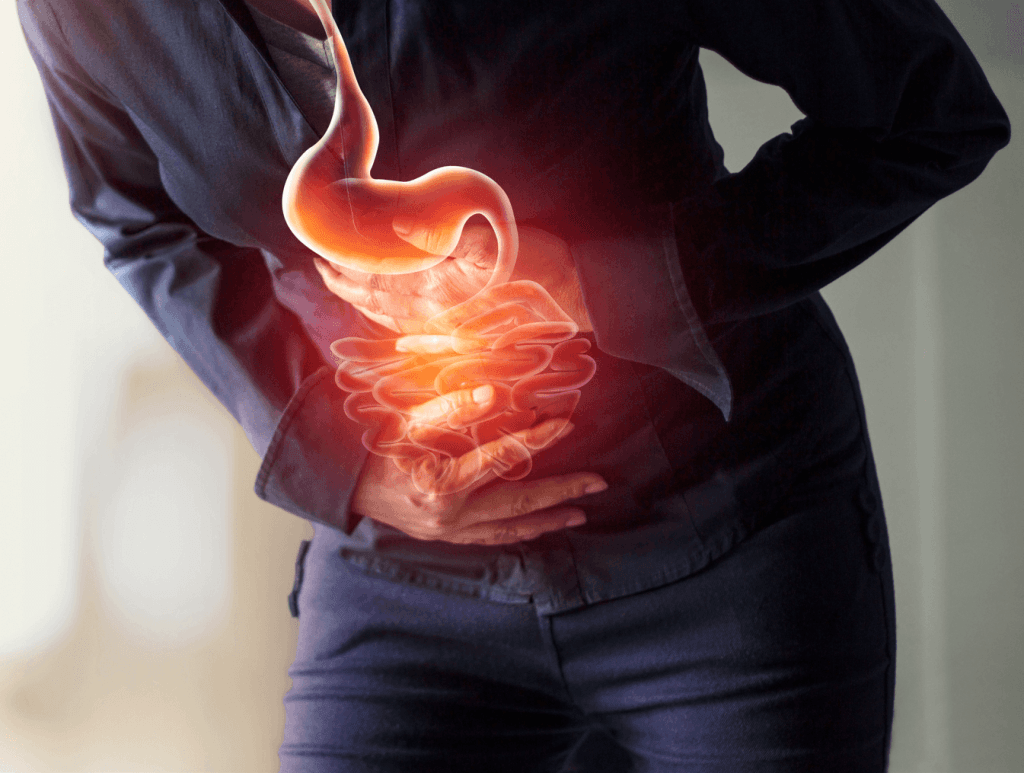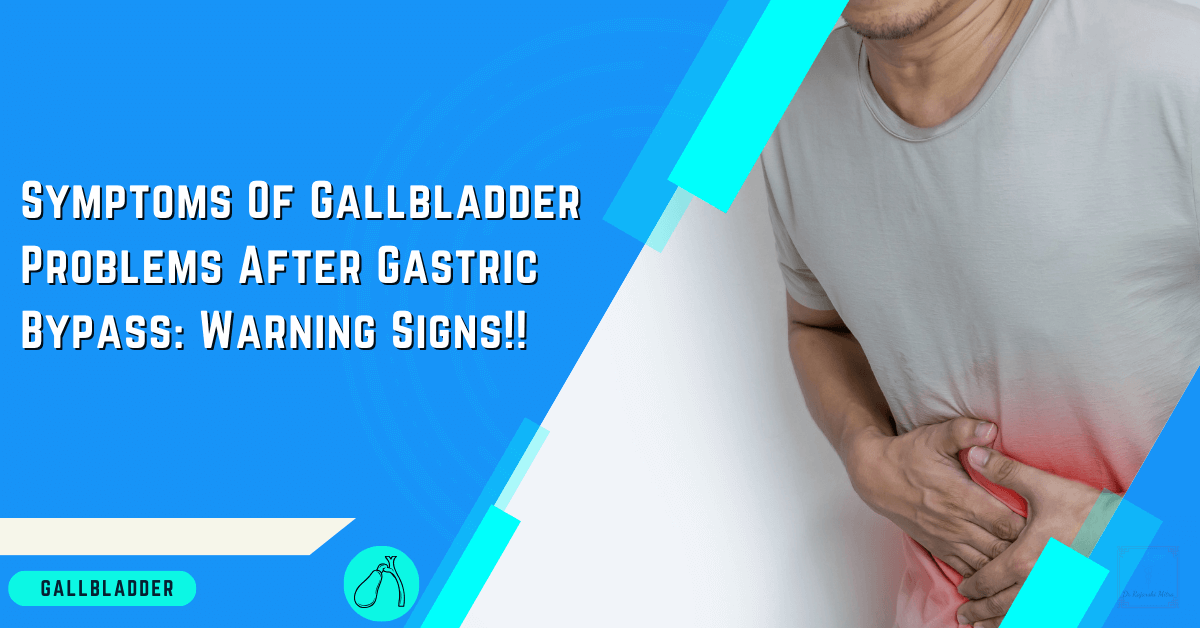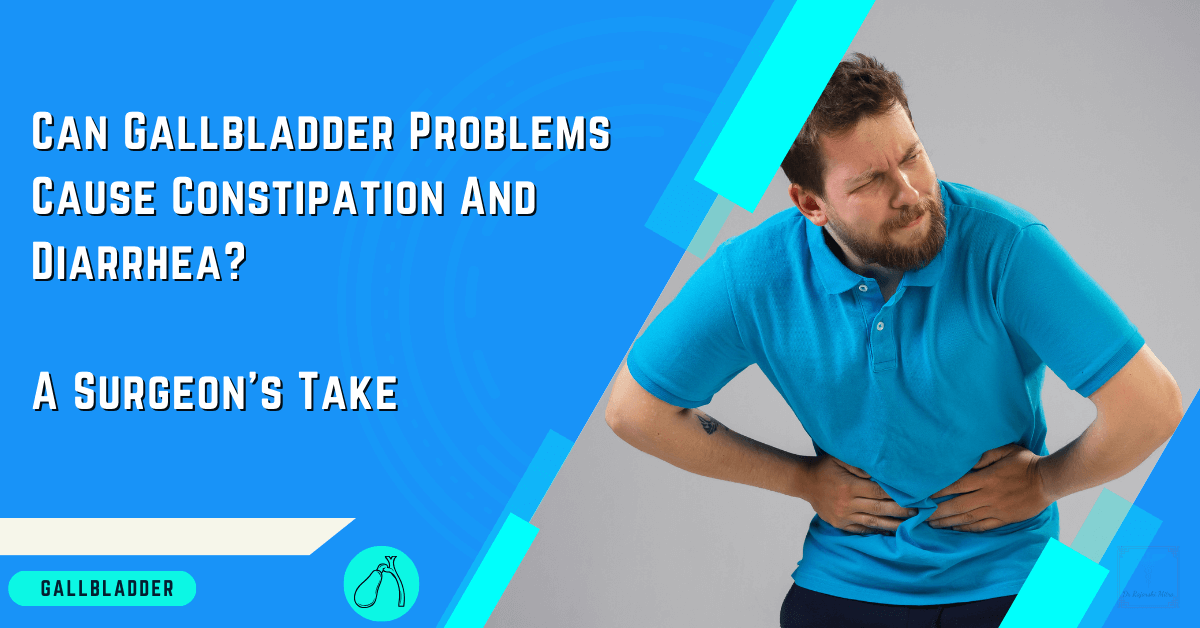Did you know? There’s a high possibility of gallbladder problems after gastric bypass. Shockingly enough, a whopping 61.4% of people develop gallstones after bariatric surgery!
Symptoms of gallbladder stones after gastric bypass include abdominal pain and digestive issues.
Sometimes, you may notice a changed heart rate and signs of jaundice. Don’t ignore these signs! After all, this surgery changes your digestive system significantly and causes serious complications.
Sure, this surgery helps deal with stubborn weight and obesity-related conditions. But rapid weight loss may increase cholesterol production, causing gallbladder stones. Read on to know about the signs you should be cautious about!
Gallbladder Problems After Gastric Bypass – Highlights
- Over 60% of gastric bypass patients develop gallstones, posing a substantial risk.
- Warning signs include abdominal pain, digestive issues, altered heart rate, and jaundice post-surgery.
- Roux-en-Y alters stomach size and structure, achieved through open or laparoscopic surgery.
- Rapid weight loss post-surgery increases cholesterol production, leading to gallstone formation.
- Strategies involve medication, slow weight loss, proper nutrition, exercise, and, if necessary, gallbladder removal through laparoscopic surgery.

Gastric Bypass – A Highly Effective Bariatric Surgery
Roux-en-Y gastric bypass surgery – or just gastric bypass – is a bariatric surgery for weight loss. It alters your stomach size and small intestinal structure to change how your body processes food. Thus, it helps cut excess fat and weight when regular dietary changes and exercise fail.
First, the stomach is stapled to create a small pouch with a reduced capacity for food. Next comes the “bypass.” The surgeon connects the jejunum, or the middle part of the small intestine, to the pouch through a hole.
This directs the food from the pouch to reach one part of the small intestine while bypassing the other. Weight loss may become intense within the first few months after surgery.
There are two ways to perform this weight loss surgery:
- Open SurgeryThe surgeon cuts open the belly to operate on your stomach and small intestine.
- Laparoscopic SurgeryThe surgeon makes a few holes to insert instruments and a small camera and access the inside of the abdomen.
Gallbladder Function and Gallstone Formation – A Quick Look
Located below the liver, the gallbladder is a small organ in the digestive system. The gallbladder stores a portion of the bile released from the liver. Between meals, it reaches the gallbladder. This is later used for digestion.
When you eat fatty foods, the gallbladder squeezes bile out through the bile duct. This helps break down food in the small intestine. But the gallbladder may develop diseases like gallstones, inflammation, and functional disorders.
The most common gallbladder condition is the incidence of gallbladder stones. And it can result from various reasons, including rapid weight loss. Also, note that obesity is one of the major risk factors behind this condition.

Symptoms of Gallstones and Other Gallbladder Diseases after Gastric Bypass
The development of gallstones is one of the main gallbladder issues after gastric bypass surgery. And when the stones become large, they may lead to a gallbladder attack. The signs and side effects are as follows:
Pain in the Abdomen
One of the common symptoms of gallbladder disease is biliary colic. It’s a visceral pain caused by pressure in the gallbladder or the bile ducts.
It starts with a dull ache in the abdomen’s upper right side. This upper abdominal pain may eventually spread to the middle.
If left untreated, it will soon reach your right shoulder blade – and the pain can last up to 5 hours, landing you in the ER. Infection-induced swelling, acute inflammation of the gallbladder, reduced gallbladder emptying, and biliary stricture may also cause pressure and pain.
Digestive Difficulties
You may experience various digestive issues due to gallstone-related complications after the surgery. These symptoms include the following:
- Bloating of the Abdomen
- Nausea
- Vomiting
- Diarrhea
- Chronic Gas
The symptoms may be mild enough to be ignored in the initial stages. However, they may be accompanied by fever and chills, especially in the event of inflammation or acute cholecystitis.
Jaundice
When gallstones and inflammation cause blockages, there’s an accumulation of bile in the biliary system. This leads to some visible signs.
You may develop a yellowing or discoloration of the skin and eyes, dark urine, and pale stool, which might develop after this bariatric procedure.
Rapid Heart Rate
Any inflammation of the gall bladder can develop into a potential infection, which may lead to Tachycardia, a rapid heartbeat. This can be an indication of an infection in the body.
What Causes of Gallstones and Other Gallbladder Conditions after Gastric Bypass?
Experts believe rapid weight loss and gallstones or other gallbladder diseases are associated. When you lose weight after a gastric bypass, there is an accumulation of cholesterol. The liver produces more cholesterol than the bile can dissolve.
Besides the high cholesterol level produced by the liver, this substance may also reach your body due to your diet, and the bile is unable to break it down.
This weight loss surgical procedure also alters bile acid circulation and reduces the speed of emptying the gallbladder.
Together, these lead to the formation of gallstones. And, being obese increases the chance of gallbladder issues in weight loss surgery patients.
If you have a history of gallstones, you have a greater risk of gallstone formation following this bariatric procedure.
Smaller gallstones usually don’t produce severe complications. Eventually, they may become large enough to block the outlet, leading to a gallstone attack followed by severe pain and other problems.
Prevention of Gallbladder Conditions after Gastric Bypass
After the surgery, speak to your doctor to know about preventive steps and reduce the risk of gallbladder conditions:
- Ursodiol MedicationIt is a common practice to administer Ursodeoxycholic Acid or Ursodiol after bariatric surgeries. This medication is effective in preventing the formation of gallbladder stones.
- Slow and Steady Weight LossDo not indulge in fad diets. And consult your doctor before trying rapid weight-loss means like intermittent fasting. These can lead to high bad cholesterol and low gallbladder movement.
- Proper Nutrition and DietMaking healthy changes to your diet can also reduce the chances of health complications. Include fresh whole foods with nutrients and fiber. Avoid fatty foods as they load bile with cholesterol.
- Regular ExerciseTry regular walks, yoga, heavy circuit training, or Pilates. Exercise encourages motility and regulates the movements of the digestive system. This can reduce the chance of gallstone formation.
- Gallbladder Removal SurgeryDepending on various factors like your medical history, surgically removing the gallbladder might be a good idea. The gallbladder may be removed by a minimally invasive procedure called a laparoscopic cholecystectomy.
Diagnosis of Gallbladder Diseases after Gastric Bypass
The process starts with checking your medical history. Your healthcare provider will also review the symptoms.
A physical examination will follow. This is to check for any noticeable swelling or pain in the area of the gallbladder located on the right of the abdomen.
Further tests will also be prescribed to check:
- Blood Count
- Liver Function Tests
- Tests for Pancreatic Functions, Blockages, and Pancreatitis
- Abdominal Imaging Test
- HIDA Scan
- ERCP (Endoscopic Retrograde Cholangiopancreatography)
- US (Endoscopic Ultrasound)
What Are the Treatment Options for Gallbladder Conditions after Gastric Bypass Surgery?
The following treatment options can eliminate gallbladder-related complications after gastric bypass:
- Analgesics to reduce pain and antibiotics for infections.
- Endoscopic interventions to remove gallstones or widen bile ducts with stents (usually not possible after a Gastric Bypass Surgery).
- Removal of the gallbladder using laparoscopic surgery.
Sometimes, gallbladder removal might be the only answer. This is a safe procedure, and doctors now prefer to perform laparoscopic minimal invasive day care surgery. Here, the gallbladder is removed through a few incisions.
Final Note From Dr. Rajarshi Mitra
If left untreated, gallbladder complications after gastric bypass or other bariatric surgeries like gastric sleeve surgery may lead to cholangitis, pancreatitis, or cirrhosis.
So, your doctor may decide to have the gallbladder removed by laparoscopic procedure. It helps put their patients through the least discomfort and downtime.



















